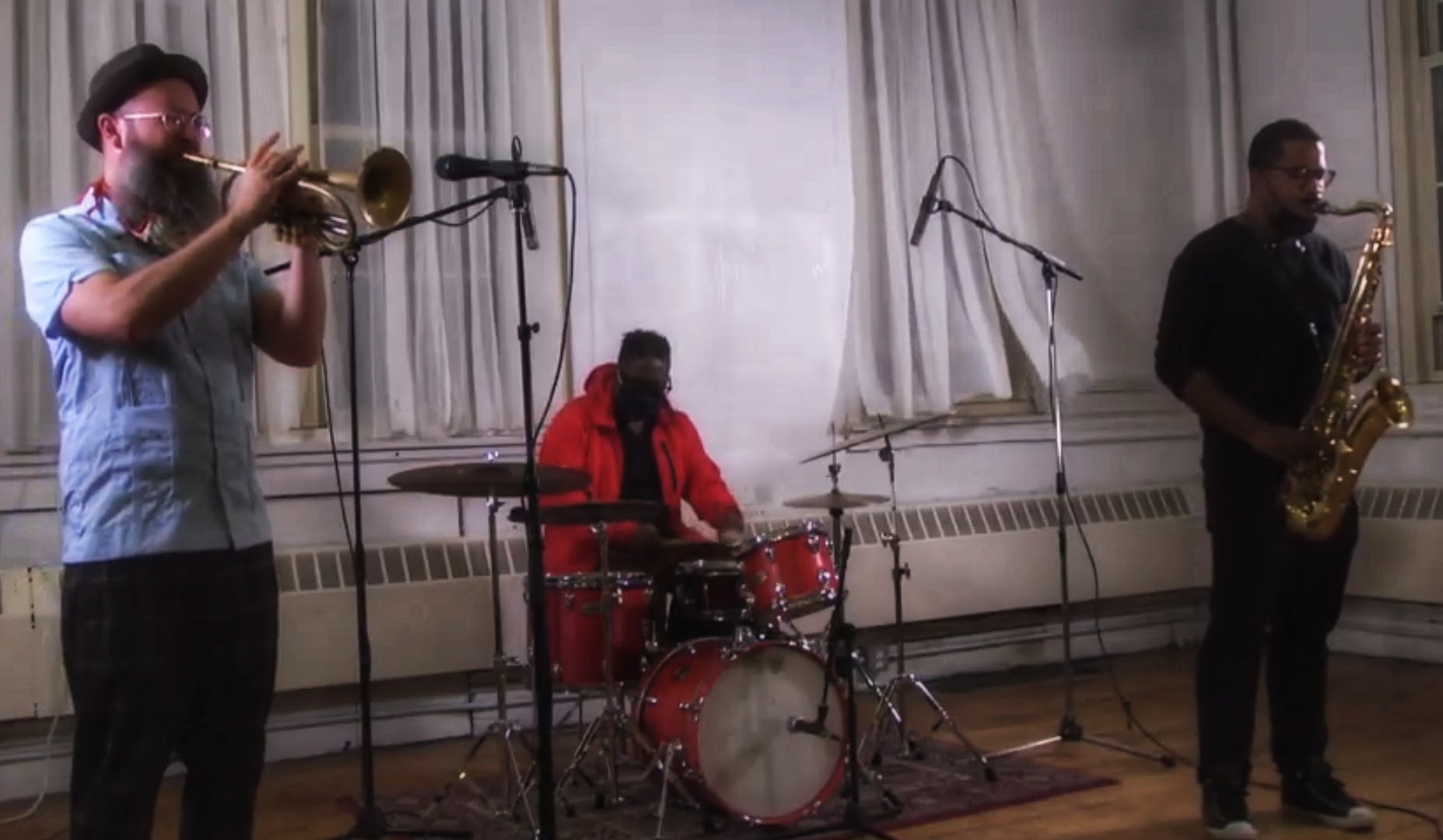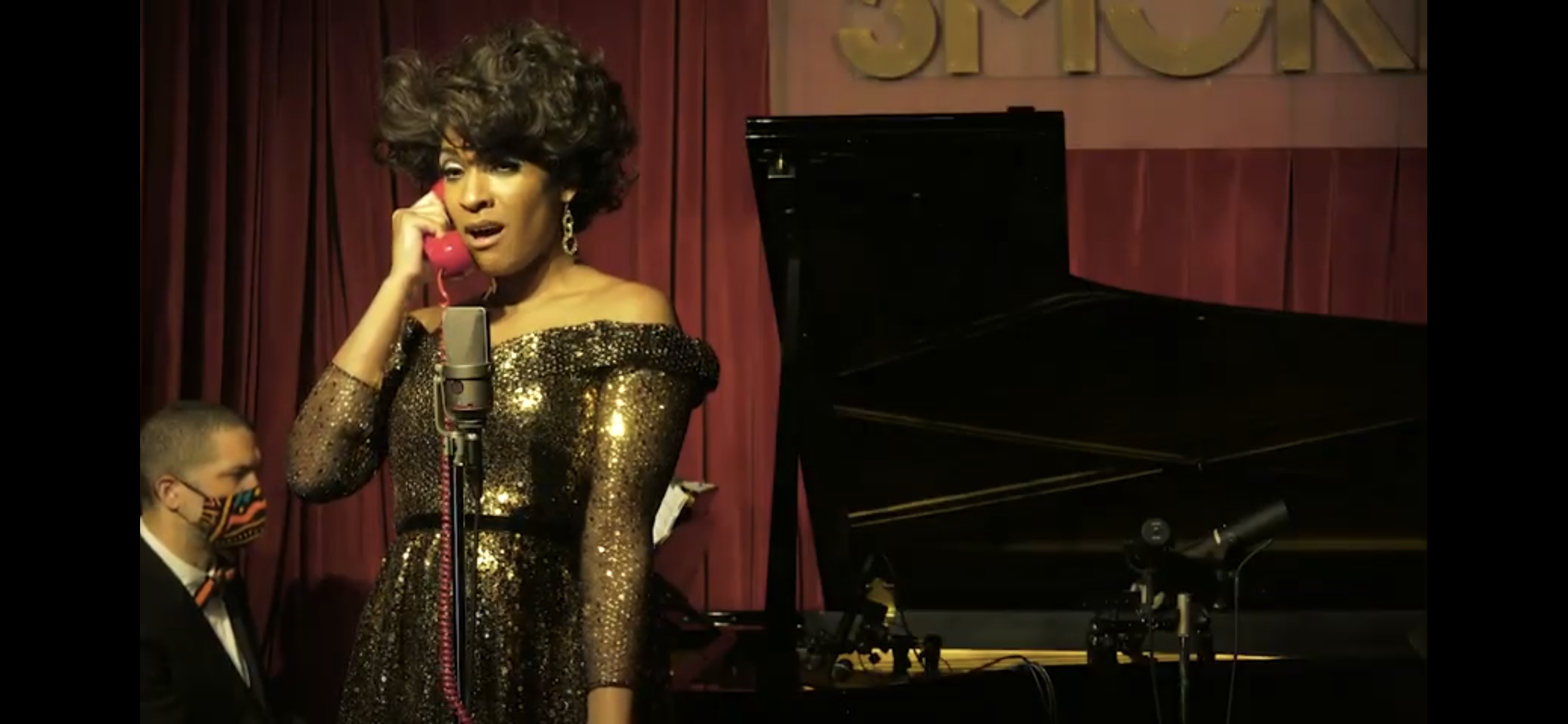
Amina Claudine Myers Solo
Keyboardist Amina Claudine Myers is the beating heart of the soulful Chicago avant-garde that enraptured me as a teenager and shaped so much of my tastes then and since. Arts For Art, the organization that helps present Vision Festival, has done more to keep the flame of this music strain alive when we can’t gather than anyone else. They outdid themselves with a birthday set by the great one herself on solo piano.
In the same room they’ve used for other streams, Arts for Art deployed their typically excellent sound design and production values. Every vibrant note rang out of the piano and washed over me, almost making me forget I was so many miles away, watching it on Youtube.
A long ballad with sparse, affecting lyrics floated on chords that seemed to play in the dappled Sunday sunlight when I watched this. A speedier, percussive, swinging piece used clusters of notes to make me feel the pounding in my chest a little more deeply.
For this hour of her birthday, Myers treated us to gorgeous conversations with the universe, her intense history of the piano, and with the core goal of turning personal expression into a deeply felt sense of connection with her chosen community. I was lucky to even be in the room, virtually, for this reminder of everything I love about music.

Photo By: Mark Mineart; provided by Otterbein
Into a Lamplit Room: The Songs and Life of Kurt Weill produced by Otterbein University
I hadn’t checked in with Otterbein University’s virtual offerings this season until now, and I regret I wasn’t able to make my schedule such to write a full preview of their delightful Kurt Weill tribute, which aired last week.
I’ve long been a fan of Weill, in my case going back to a Grandmother who loved standards (and placed “September Song” so high it was practically the star on the Christmas tree) and the Hal Willner compilation Lost in the Stars I found on a campus record store run during High School.
And I love what Otterbein does. Their focus on very traditional, entertaining storytelling with rock-solid standards for singing and dancing occasionally lines up with my more idiosyncratic tastes for some of my favorite experiences in town – in recent years they gave us a Top Girls and a Fiddler on the Roof I still talk about.
Into a Lamplit Room, a 2013 revue devised by CCM Musical Theatre chair Aubrey Berg with arrangements by Julie Spangler, soars. I hadn’t realized how much I missed what they do until watching this a stellar young cast of Emily Baggarly, Lucy Breedlove, Nijah Dent, Ashton Lambert, Kate Maniuszko, Victoria Mesa, William Porter, Max Pinson, Hannah Schmidt, Tru Stites, and Dean Yurecka splash a new coat of paint on these time-worn chestnuts. I apologize I didn’t capture who sings what – my press data just says there are no named characters. If someone wants to fill me in with the comments or in an email, I’d appreciate it.
Under the expert hands of director Thom Christopher Warren and musical director Lori Kay Harvey, Into a Lamplit Room balances the rat-a-tat-tat percussiveness and wordplay of these songs with a necessary acid irony befitting the times they were written and just as useful a tonic today.
The former glows like a knife on finger-snapping romps through “Schicklgruber” (with expert use of split-screen), “Economics,” and a riotous “The Trouble With Women” sung by the women in the cast.
Not every experiment works. There’s an off-kilter “Mack The Knife” that tries too hard to put the sociopathic narrator in a social context and falls flat – though the gorgeous black and white footage of the cast at Westerville hotspot Asterix made me miss that bar with a visceral pang.
At its best, Into a Lamplit Room summed up what I love about these songs and gave me fresh ears. The cast’s women harmonizing and trading off on a brittle, wrenching “The Soldier’s Wife” stunned me. A breathtaking “Pirate Jenny” made the line “And you yell, ‘Why the hell do they spare that one?’” hit like an acid-tipped dagger. A duet on “Moon Faced, Starry Eyed” was ribald perfection and a crackling showcase for Stella Hiatt Kane’s always dazzling choreography. A bravura “Cry. The Beloved Country” excellently used footage around the Short North without detracting from the jaw-dropping singing.
I want to take a moment to highlight the stellar production values. Otterbein takes deserved pride in the technical side of their theatrical education department and Warren, Harvey, Kane, scenic designer Rob Johnson, and costume designer Rebecca White, with special attention to Avery Barrett’s stage managing, T. J. Gerckens’ lighting and the sound design team of Doc Davis and Kailey Miller, made something that sounds and looks every bit as good as it does in their big concert hall. It’s a tremendous achievement and a hell of a lot of fun.


